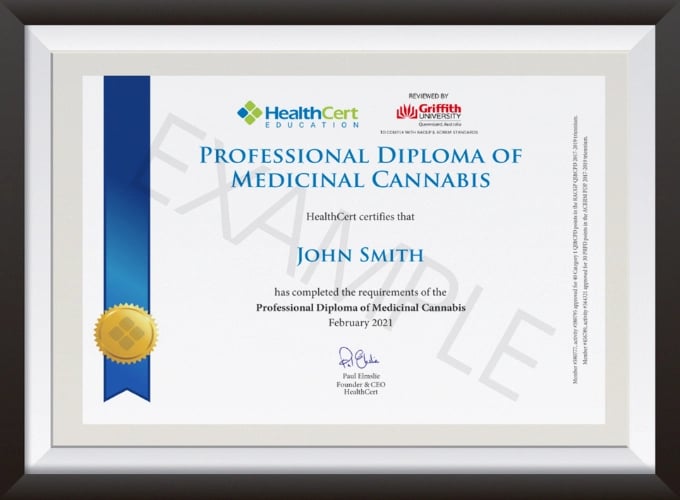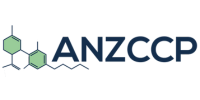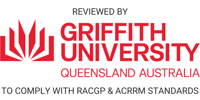This week we revisit a case submitted by Dr Cheh Goh. A nurse brings in their 62-year-old father...
.jpg?height=200&name=HCE%20HubSpot%20blog%20images%20600x350%20(52).jpg)
Advance your knowledge in the applications of plant-based therapies for patients in primary care.

Understand the medical applications of cannabinoids in general practice as a tool to improve patient outcomes.
- Stay ahead of the curve in managing common conditions in general practice with cannabinoids.
- Gain a plant-based medicine certification and enhance patient outcomes.
- This course is suitable for physicians, nurse practitioners, and degree-qualified nurses.
- CPD-accredited and university-reviewed.
- Improve your care for geriatric and palliative patients using plant-based medicine.
- Provide effective epilepsy treatment through advanced
- plant-based medicine use.
- Use plant-based therapies in the management of PTSD and other mental health conditions.
- Explore additional approaches to support cancer patients beyond symptom relief.
- Gain a plant-based medicine certification.
- Make the Special Access Scheme-B (SAS-B) application on the Therapeutic Goods Administration (TGA) online portal to confidently take control of patient care.
Get unlimited access to all course content, additional learning materials, ongoing post-course support, and more.
NOTE: GPs working in Australia (except for in Tasmania) may prescribe plant-based therapies, however, as part of the guidelines of the Therapeutic Goods Administration Special Access Scheme-B, you will need to acknowledge that you have the knowledge necessary to do so. This program will equip you with the knowledge required to manage and prescribe plant-based therapies for various conditions and can serve as part of your documentation showing you have undertaken education in this field when you decide to become an authorised prescriber. More information here.
This module briefly revisits the history of plant-based medicine use and its legislation in Australia in 2016. Two main cannabinoids are distinguished: THC (Tetrahydrocannabinol) and CBD (Cannabidiol). The module describes common and rare side effects, results and varied responses of patients to plant-based therapies. Plant-based medicine does not work equally for everyone – dosages vary and outcomes are different for each patient. The module describes the use of cannabinoids to relieve pain in patients with malignant diseases compared to placebos. Four case studies demonstrate how plant-based therapies can be considered for geriatric and palliative care treatment. In conclusion, plant-based therapies may have a legitimate role for certain patients in certain circumstances and each patient’s management is to be individually considered.
This module studies the symptoms of Epilepsy 101, plant-based treatment options and modes of transmission. Several ways of application are outlined, as well as different products: artisanal preparations, unapproved products and approved medication of purified CBD. Dravet syndrome (DS) is explained, including treatment options, side effects and efficacy are discussed. A section describes Lennoz-Gastautsyndrome (LGS) and reviews research and treatment options including side effects. Tuberous Sclerosis Complex (TSC) symptoms are explained and studies and treatment options are discussed. Other potential applications of CBD are outlined including childhood epilepsy, next generation plant-based medicines, biosynthesis of cannabinoids in the plant and anticonvulsant effects.
This module focuses on PTSD and treatment in clinical practice. The module assesses the use of plant-based therapies for PTSD, including dosage and treatment. It describes what PTSD is and what the signs, symptoms and characteristics are. The conventional treatment of PTSD, e.g. sleeping medications or antidepressant medications, is being compared to the cannabinoid treatment options. The current position of the Department of Veterans Affairs (DVA) on PTSD is that compensation for PTSD treatment with plant-based medicine is not allowed. However, research into plant-based therapy is rapidly evolving and DVA will continue to monitor the developing research and published evidence. Two case studies look into symptoms, current medications, treatments using CBD, and provides reviews and results of these studies.
This module focuses on advanced mental health conditions. The module commences with the importance of understanding the science of plant-based medicine and the role it can play when treating mental health issues. Advantages and side effects are outlined. When managing complex mental health issues, the module describes treatment and techniques for schizophrenia, bipolar disorder, severe anxiety and depression. PTSD patients, often in military and first-responders frequently utilise plant-based medicine. A comparison is made between THC-dominant, to CBD-dominant, or balanced (e.g. nabiximols). The module summarises studies of the use of plant-based medicine and mental disorders. The module also addresses the use of plant-based therapies in conjunction with conventional medications, potential toxicities, most common symptoms treated and side-effects. Larger trials on the use of plant-based therapies for mental health are in progress.
This module focuses on cancer research for potential treatment with plant-based medicine leading to a curative approach that goes beyond symptom relief. The module evaluates treatment options for breast and pancreatic cancer patients with plant-based medicine and evaluates the use of plant-based therapies to mitigate the side effects of cancer and its treatment. It looks into early diagnosis, treatment, defining and aetiology of cancer as well as defining and targeting the hallmarks of cancer. Clinical and side-effects of CBD and Δ9-Tetrahydrocannabinol (THC) are listed. Outcomes of studies into cannabinoids in pain management and palliative medicine are included.
This module focuses on complex chronic diseases. Content includes planning the management of complex chronic diseases including poly pharmacy, multiple system disease. It evaluates the challenges of effectively integrating cannabis medicines including liver metabolism considerations and drug interactions. The results of a study into patients with chronic diseases (conditions that last 1 year or more and require ongoing medical attention, long lasting conditions with persistent effects), are included where patients have at least two conditions and were prescribed a minimum of four drugs. When choosing a cannabis product, the preferences of the patient, age and clinical condition are to be considered. The module describes dosing of THC and CBD and minimum/ maximum doses. A case study looks into current medications, past treatments, clinical history, treatment options, progress and life quality.
This module focuses on endocannabinoid support – advanced techniques for maximising ECS efficiency. The module evaluates clinical endocannabinoid deficiency (CED) and examines options to maximise the efficiency and function of the endocannabinoid system including diet, supplements terpenes and therapies. Migraine, fibromyalgia, IBS and related conditions display common clinical, biochemical and pathophysiological patterns that suggest an underlying clinical endocannabinoid deficiency that may be suitably treated with cannabinoid medicines. This module discusses findings that provide a mechanistic scenario for how chronic stress, diet and gut microbiota generate a pathological feed-forward loop that contributes to despair behaviour via the central ECS. Finally, a case study of a patient with a long history of migraine headaches, insomnia and anxiety is described, looking at past treatments and treatment options.
This module looks at the planning of clinical treatment and dosing for conditions with plant-based medicine. General rules of dosing with plant-based medicine are given noting that doses of they should be administered with consistency and regularity. Minimal doses that are clinically effective should be a principle aim. Each person is individual in their response to plant-based therapies. Patient age and previous use / experience must be taken into consideration. Initially, conventional medications should be maintained at current dosing rates. Plant-based medications should be titrated slowly and conventional medications reduced as symptoms lessen. Treating of rheumatoid arthritis, neuropathic pain, fibromyalgia, headaches and migraine, multiple sclerosis, Parkinson’s (tremor and dystonia), Chron’s disease and ulcerative colitis, chemotherapy induced nausea and vomiting, anxiety and depression, insomnia, PTSD, epilepsy, ASD, ADHD, OCD and Tourette's, diabetes, hypertension, glaucoma, geriatric/palliative care and complex mental health issues are reviewed in this module.
As the pinnacle of plant-based medicine training at HealthCert Education, the Professional Diploma of Medicinal Cannabis goes beyond traditional coursework to deliver a truly immersive, practice-enhancing experience. In addition to course activities, a standout feature of this program is the clinical audit, where participants submit and analyse their own real-world cases — a powerful opportunity to directly apply your learning. This hands-on component, combined with an in-depth literature review of journal articles, ensures participants leave with both academic rigour and practical excellence.

Professor, Metabolism, School of Pharmacy and Biomedical Sciences, Curtin University, Australia
Professor Marco Falasca graduated in Pharmacy and then in Pharmaceutical Chemistry at the University of Camerino, Italy. His education further includes a Diploma of Specialisation in Applied Pharmacology at the University of Bari and a FORMEZ Research Award (PhD equivalent) at the Consorzio Mario Negri Sud, Italy. After three years at the New York University Medical Center, Department of Pharmacology (Head Prof Joseph Schlessinger), Prof Falasca took up a position as Head of the Unit of Physiopathology of Cell Signalling within the Consorzio Mario Negri Sud in 1998.
In 2001 he moved to London where he was appointed as Principal Research Fellow, Senior Lecturer within the Department of Medicine at the University College London. In 2007 he was appointed as Professor of Molecular Pharmacology at the Queen Mary University of London. He is currently Professor of Metabolism at Curtin University, Australia. He has published more than 100 papers in reputed journals and has been serving as an editorial board member for several international journals.
The focus of Prof Falasca’s research in the past 25 years has involved the investigation of signalling pathways regulating intracellular physiological and pathological processes. Prof Falasca’s current specific projects are dedicated to the investigation of the mechanisms involved in development and progression of pancreatic diseases.

Deputy Academic Director of the Lambert Initiative for Cannabinoid Therapeutics at the University of Sydney, Australia.
Professor Jonathon Arnold is a world leader in the science of cannabis and the cannabinoids. He is Deputy Academic Director of the Lambert Initiative for Cannabinoid Therapeutics at the University of Sydney, Australia. This is a cross faculty research initiative that specialises in the discovery and development of cannabis-based medicines. In 2018 he was one of four scientists selected to advise the World Health Organisation (WHO) on their historical review of cannabis and the cannabinoids.
Prof Arnold has over 20 years’ experience in cannabinoid pharmacology and has published extensively on the molecular, cellular, neurobiological and behavioural actions of the phytocannabinoids, cannabidiol (CBD) and tetrahydrocannabinol (THC). Since 2016 he and his team have conducted epilepsy research to improve the understanding of the anticonvulsant properties of the phytocannabinoids. He recently published a high-profile paper which shed new light on the mode of action of CBD in the treatment of childhood epilepsy (Altmetric 75). This paper received the Epilepsia Brain Science Prize honouring the most significant advance in knowledge in the field of epilepsy in 2019.

.png?width=143&height=143&name=Joe%20Kosterich%20(3).png)

$1595
Bundle two courses and save 5%, or three courses and save 10% upon enrolment.
Talk to us about deferred payment options, registrar scholarships and special rates.
*For Australian residents only: Online course prices are shown exclusive of GST. If you are GST-registered, please enter a valid ABN at checkout to ensure GST is not applied. Otherwise, 10% GST will be added at checkout. View our FAQ for more information.


HealthCert courses have become the standard by which you gauge all others.
Dr K. Abolarinwa
Good courses with excellent speakers. I particularly enjoyed the case study scenarios which helped to integrate the knowledge gained.
Dr A. Tucker
This is the pathway to improve your confidence and evolve into the GP you aspire to be.
Dr S. Shinwari
| RACGP Activity Number | ACRRM Activity Number | Activity Title | Education Hours | Performance Hours | Outcome Hours | ||
|---|---|---|---|---|---|---|---|
| 433884 | 30983 | Geriatric and palliative medicine | 433884 | 30983 | 4.5 | 6 | 0 |
| 433893 | 30986 | Epilepsy – Adult and child | 433893 | 30986 | 4.5 | 6 | 0 |
| 434272 | 30987 | PTSD – Treatment in clinical practice | 434272 | 30987 | 4 | 6 | 0 |
| 434278 | 30988 | Advanced mental health | 434278 | 30988 | 4 | 6 | 0 |
| 434286 | 30989 | Cancer – a curative approach – where to beyond symptom relief | 434286 | 30989 | 4 | 6 | 0 |
| 434290 | 30990 | Treatment resistant patients and patients with high cannabinoid needs | 434290 | 30990 | 4 | 6 | 0 |
| 434297 | 30991 | Endocannabinoid support – advanced techniques for maximising ECS efficiency | 434297 | 30991 | 4.5 | 6 | 0 |
| 436022 | 30992 | Complex chronic disease | 436022 | 30992 | 4.5 | 6 | 0 |
| 762295 | 32362 | Clinical Audit: Plant-Based Therapy and Neurological Disorders | 762295 | 32362 | 0 | 2 | 19.5 |
| 757827 | 32361 | Clinical Audit: Plant-Based Therapy and Chronic Pain | 757827 | 32361 | 0 | 2 | 19.5 |
| 766233 | 32437 | Professional Knowledge, Skills and Networking | 766233 | 32437 | 6 | 0 | 0 |
| Total hours | 40 | 52 | 39 | ||||
View the CPD Hours for all HealthCert Education activities.
This Professional Diploma of Medicinal Cannabis is suitable for physicians, nurse practitioners, and degree-qualified nurses. The prerequisite course is the Advanced Certificate of Medicinal Cannabis (or qualification deemed equivalent).
Participants do not have to pass an IELTS test but, as the courses are delivered in English, proficiency in listening, reading and writing English is assumed.
Participants will require access to a computer/laptop, an internet connection and a basic level of technology proficiency to access and navigate the online learning portal.
This certificate course meets the minimum 50 hours CPD annual requirement across all three mandatory CPD activity types.
Upon successful completion of the course, participants will receive the Professional Diploma of Medicinal Cannabis and CPD hours.
This certificate course:
To learn more about the delivery of certificates in Australia and overseas, please visit our FAQs.
Professional Diploma Pathway
This course is the last stage of the three-part Professional Diploma of Medicinal Cannabis. The education pathway is Professional Certificate of Medicinal Cannabis, Advanced Certificate of Medicinal Cannabis and Professional Diploma of Medicinal Cannabis.
GPs working in Australia (except for in Tasmania) may prescribe plant-based therapies, however, as part of the guidelines of the TGA SAS-B, you will need to indicate that you have the knowledge necessary to do so. This program will equip you with the knowledge required to manage and prescribe plant-based therapies for various conditions and can serve as part of your documentation showing that you have undertaken education in this field when you decide to become an authorised prescriber. More information here.
This organisation is an RACGP-accredited CPD provider under the RACGP CPD Program.





Don't see your question? Explore other faqs or talk to us.
Fees will vary based on the program and study option selected (fully online vs online + optional practical workshop). Payments can be made upfront or in monthly instalments. Special rates and various payment options are available. GP registrars and doctors in training enjoy a scholarship of up to $500. Talk to us to learn more.
Completion of any HealthCert course or attendance at an event will enable you to access the HealthCert Alumni Program which includes:
HealthCert Education is pleased to issue digital credentials for alumni. Digital credentials are a permanent online record of your successful completion of a HealthCert course and are issued to all course participants in addition to PDF certificates. If you are based in Australia, you also have the option to order a hard copy of your digital certificate for a small additional fee.
The recommended study duration of this certificate course is 103.5 hours, which includes study of the pre-course activities and readings, online lectures, live tutorials, and online assessment. This self-paced course offers the flexibility of 100% online study in your own time, at your own pace, in your own home or office, with no mandatory face-to-face requirements. You are not required to be online at specific times but can view and replay video lectures at your convenience.
All HealthCert courses meet World Federation of Medical Education standards. This certificate course qualifies for CPD hours from the Royal Australian College of General Practitioners (RACGP) and the Australian College of Rural and Remote Medicine (ACRRM) in Australia. If you live or work outside Australia, please contact us on admin@healthcert.com to discuss whether this course can be recognised in your country.
Want to stay up-to-date with the latest case studies, podcasts, free video tutorials and medical research articles pertinent to primary care?
Our Education Advisors can assist you with any queries and tailor our education pathway to suit your current expertise, interests and career goals.